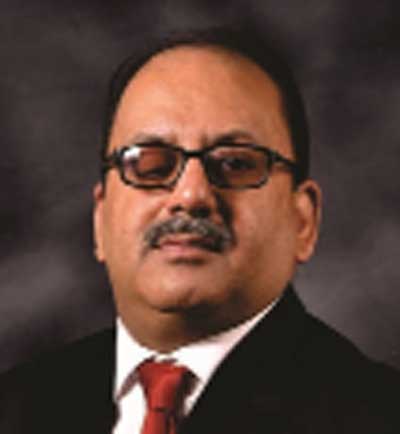For almost half a century, the Muslims of Indian Sub-Continent struggled for their rights under Muslim League’s banner since 1906. Even though, the Muslims of India were fortunate to have the charismatic leadership of Jinnah which ultimately lead to the establishment of Pakistan, but in their journey towards achieving their rights they couldn’t plan for a possible future government of their own. It seems that all their struggle was focused on achieving their rights till 1940, but as events took a dramatic shape after World War-II ended, it was possibly the only option to press for a sovereign state of their own so as to avoid the potential onslaught of aggressive outbursts of an overwhelmingly Hindu Majority government.
Jinnah presided over the Constituent Assembly of Pakistan on 11th August 1947. He outlined a moderate Islamic state and clearly announced to guarantee the rights of all citizens alike. Unfortunately, Pakistan could not have a constitution in Jinnah’s lifetime as he died just after a year and a month Pakistan got her independence. Things started getting worse, confusion and chaos frustrated all efforts to end this turmoil. The incompetence and corruption of the political leadership opened the roads of opportunity for the bureaucratic elite and the dictatorial regimes in Pakistan. A country established with the blood and adorned with prayers of mothers who lost their sons on their way to Pakistan went astray from its objective.
So far, we could not diagnose the disease that proved to be cancerous for Pakistan’s survival and we took short term measures to relieve pain. Due to the legacy of imperial mindset that the British left with us, we left no stone unturned to spoil the very fabric of our society and the institutions that helped govern the state. The bureaucracy carried the baggage of their British masters who had only mastered the art of ruling those masses who never questioned. This habit of not allowing the people to question has led to a psyche of blind following of politicians.
The right to rule over the masses and not the service of the people became the trend. Right from the bureaucrats, healthcare officials, education personnel to all the officials in public offices behaved in an absurdly rude manner as if they were not the public servants rather the masters. However, with the passage of time the officers and the higher hierarchy gradually changed their attitudes from rude to relatively polite, but the lower staff still remains so. This is evident from the day to day behavior of police personnel, rangers, and bureaucracy who behave in typically uncivilized way at certain occasions. There is no denying the fact that some people rarely understand the polite behavior but treating everyone in the same manner reflects the lack of training in our institutions.
One may also ponder over the fact that why couldn’t we educate our public servants with the civic values and behavior in today’s modern age of 21st century when other civilized nations are researching new modes of delivery of services in the best possible manner. The problem is that none of the educational institutions offer civics as a compulsory subject and it is just taught as an optional subject in colleges where the purpose is not to teach civics as a tool to produce well informed citizens rather as an alternative to a relatively difficult subject for securing good marks.
No such courses are possibly offered in all government institutions for changing the old rotten mindset of considering the public as inferior. The civilized nations have their think tanks engaged in formulating research papers for chalking out a strategy to teach their younger generations to become good citizens where as we are busy in deteriorating further our already spoiled situation.
The fast-changing realities of the world in general and our country in particular, demand drastic efforts to reform the culture in our public offices as well as promote the civic sense in people. The more our people are digesting ideals of freedom and liberty from social media and such other sources without understanding their roles as responsible and well-informed citizens, the more this looming danger of anarchy and civil war will remain valid. We should talk to learn about ways in which our young generation is taught the art of citizenship and the values of civic life. We shouldn’t be too sure of our uncivil ways to last for long without really hurting the very fabric of our national life. We must realize that a fragile democracy like ours needs the oxygen of civic values to breathe its life.
As we know that the old are hard to train, therefore, we must strive to inculcate the civic habits, norms and values in our young generation for uplifting the umbrella of democracy which ensures space for people from all walks of life. Teaching and promoting civic ethos like being responsible, well informed about rights and duties, doing service before self, participating in affairs of the state, acquiring self-discipline and other such traits of personal character will help establish a peaceful and progressive society.
We must envisage a strategy to build the character of our youth so that they might grow up as well informed and very responsible citizens of the state. For this purpose, we must revisit our priorities of curriculum and syllabus development in such a way that civics could be taught as a mandatory subject from primary to college level dividing it into chunks of learning packages.
Educational institutions will share this responsibility the most to help develop the civic character of masses because it is a universal understanding that schools influence the formal and informal ways of learning. It might take a few decades to change the overall culture in Pakistan but indeed these kids will grow up as men and women to occupy the very places and seats which are decisive in determining the fate of our country.
It shouldn’t just be taught to students in educational institutions rather it must be promoted within the faculty of educational institutions and all other organizations as an organizational norm. Our individual and collective liberties as well as our will to be governed under democratic norms where every individual is considered equally respectable and worth the same dignity of life as the influential segment of society enjoys, can only become a reality if we succeed to impregnate the young minds with the civic ideals of rights and responsibilities.
As a famous American judge and judicial philosopher Billings Learned Hand has rightly said that, “Liberty lies in the hearts of men and women; when it dies there, no constitution, no law, no court can save it; no constitution; no law and no court can even do much to help it. While it lies there, it needs no constitution, no law, no court to save it.” Indeed, the same goes for our democracy that if the longing for democratic values dies, the technical mechanism like elections can never deliver to masses.
Sign in
Welcome! Log into your account
Forgot your password? Get help
Password recovery
Recover your password
A password will be e-mailed to you.




